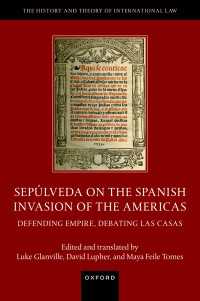Full Description
Dartmouth College v. Woodward examines the landmark case decided by the United States Supreme Court in 1819 after New Hampshire's state legislature attempted to amend Dartmouth's charter to place the college under greater public control. Adam R. Nelson interprets the case not only as one about higher-education governance or American corporate law in an emerging constitutional order, and not simply as a case about the Marshall Court's preference for "private" over "public" initiative as the primary driver of social and commercial development. More fundamentally, Nelson uses the case to illustrate a broad ideological shift from commonwealth republicanism to market liberalism in both education and jurisprudence during the early nineteenth century.The question at the heart of the case was: should Dartmouth College be subject to legislative authority? This book finds that when the state court said "yes" but the US Supreme Court said "no," the divergence between these decisions stemmed not only from different applications of the contracts clause but also from disagreements about the degree to which core institutions in a democracy—whether colleges or churches or companies—should be overseen or regulated by political majorities. Implicit in the Dartmouth case, though never clarified, was the question of whether higher education was a private or public good, and thus whether colleges are better off under private or public control. By choosing the private path, Dartmouth reinforced a gradual privatization of what might otherwise have been considered public goods. Americans today live with the consequences of this decision.
A landmark in American corporate law, the Dartmouth College case has been cited in a wide variety of subsequent decisions, including Citizens United (2010) and Burwell v. Hobby Lobby Stores (2014). Adam Nelson's informative work provides an accessible introduction to this important piece of American legal history.








